The Hills Group


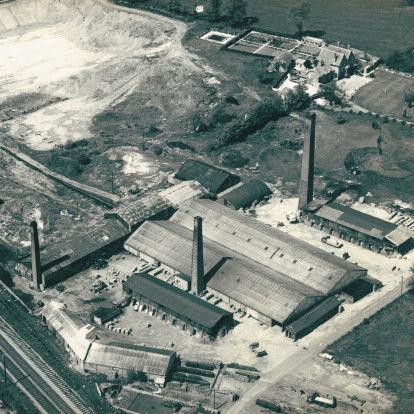


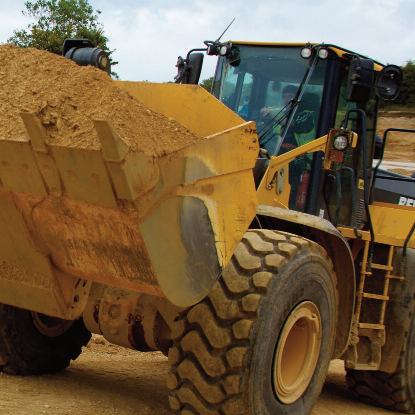
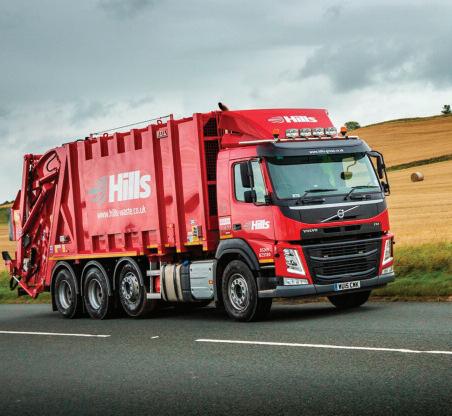
from the ground up
Edward quite literally built the business from the ground up










from the ground up
Edward quite literally built the business from the ground up


It is a pleasure to introduce this substantial update on a brochure we originally produced to celebrate our centenary back in 2000 We now have around twice as many employees and a number of new operations.
We have weathered a stinging recession, chalking up some notable achievements with exciting plans for future development.
Much has changed, and yet the essential spirit of our business remains much as it was way back when my great grandfather launched it in 1900 I often wonder how Edward felt when he set out single-handed as a brick maker all those years ago - he quite literally built the business ‘from the ground up ’ using materials dug from the earth The intervening stewardships of my father's and grandfather's generations each overcame daunting challenges and enjoyed great successes
The fact that we remain a strong unit owes a great deal to the loyalty and commitment of an admirable workforce over four generations But we also need to thank our shareholders who ensure that we remain independent and can do what most public companies cannot in taking a longer term view of our business
In this publication, we look back at the formative years which shaped The Hills Group We also explore the present and look ahead to the future direction of the Company in order to provide a complete picture
My take on the years ahead is that we certainly have hurdles to cross as the nation reduces its debt We are, however, very well placed to build on the achievements that have gone before The Hills family business will doubtless be very different ten years from now, but our core values will be much as they have always been
Michael Hill Chief executive

Edward Hill was still only 28 when, in 1900, he set up in business at the Morris Street Brickworks in Rodbourne, Swindon – and the story of The Hills Group began. The family characteristic that Edward so ably demonstrated was to work hard and play hard.
Combine that with energy, enterprise, affability and confidence and you have the recipe that is still evident today in the Hills family business It is a special blend that has enabled the family to weather the ups and downs of business life and emerge united and successful


Throughout, the family has produced capable sons who have carried the company into successive generations Edward fathered four sons, three of whom played a major part in the business – Grahame, Harold and Mervyn All lived and breathed the business Their sons – Victor, Tony, Beverley, Richard, Edward and Robert – all went on to play key roles

































































It is perhaps fitting that in this brochure reviewing Hills’ history that special homage is paid to the late Robert Hill who died in 2014
The former chairman who reorganised the business in the 70’s and 80’s, ably assisted by the current chairman Alan Pardoe, has more than anyone shaped the modern day Hills Group Robert’s son Michael continues to drive the business forward building on his father’s many achievements
Family bonds are strong, but they are by no means exclusive when it comes to bringing talent into the business Non-family members have, and still are, greatly valued It is that astuteness and generosity of spirit that has kept the business afloat when others have floundered on a desire to ‘keep it in the family’
















































Hills’ association with Swindon began in the middle of the 19th century when Edward Hill’s father (also Edward) moved to Swindon from Weston-Super-Mare where the family had long been involved in brick and tile manufacture as well as boat making.

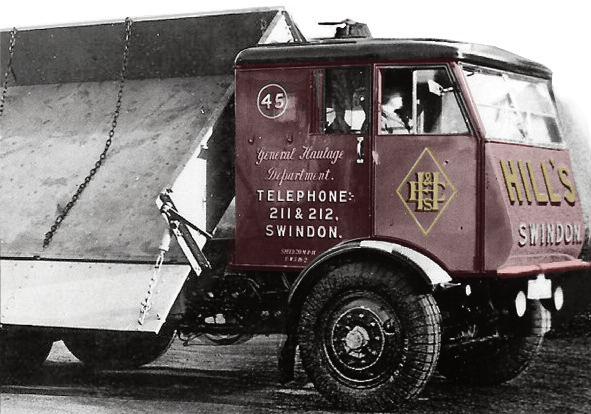
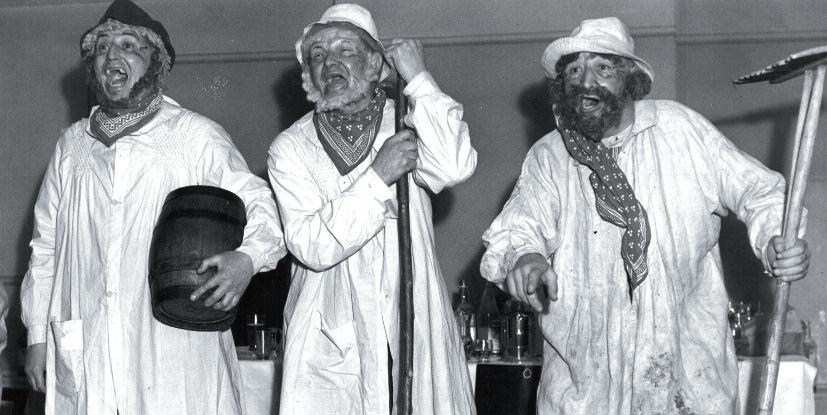

The family had long been involved in brick and tile making as well as boats

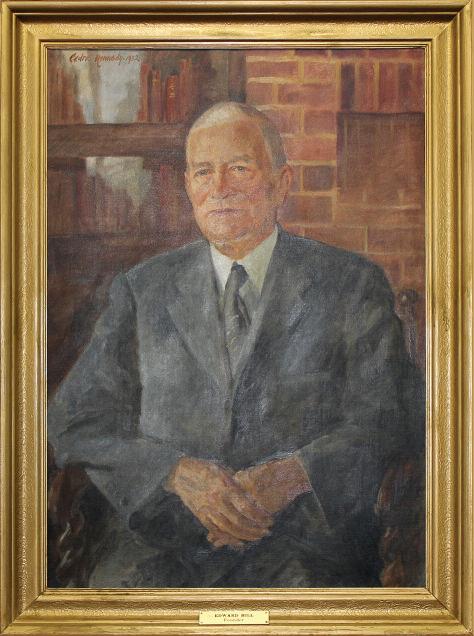
He settled in Stratton St Margaret, married a local girl and, after hauling coal in barges and working as master craftsman at a pottery, managed three local brickworks
The spirit for which the family is still known shone through when the younger Edward took himself with a friend to the United States in 1891 at the age of just 19 where he worked for a time at a brickworks. It was an experience that was to influence much of his later thinking on the subject.
Soon after his return he took on the management of the Transfer Brickworks in



Employees stocking the continuous kiln at Purton.



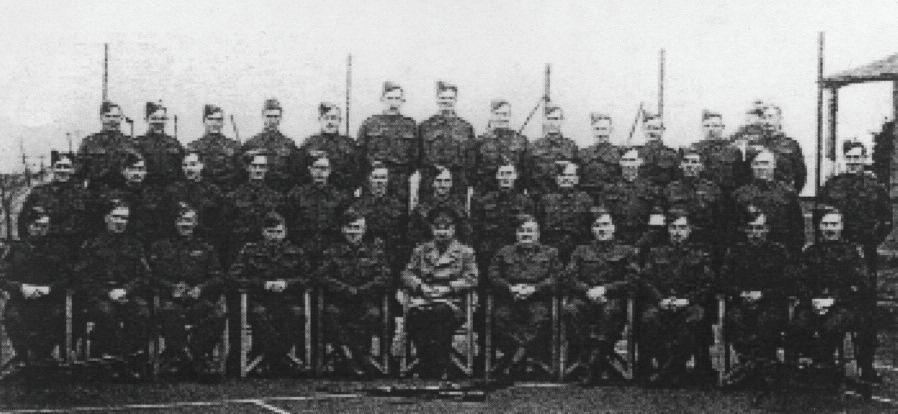





The First World War (1914–18) proved to be a significant period for the company. As well as stimulating increased brick production, it resulted in diversification and the emergence of the familiar Hills fleet of lorries, some of them steam-driven.
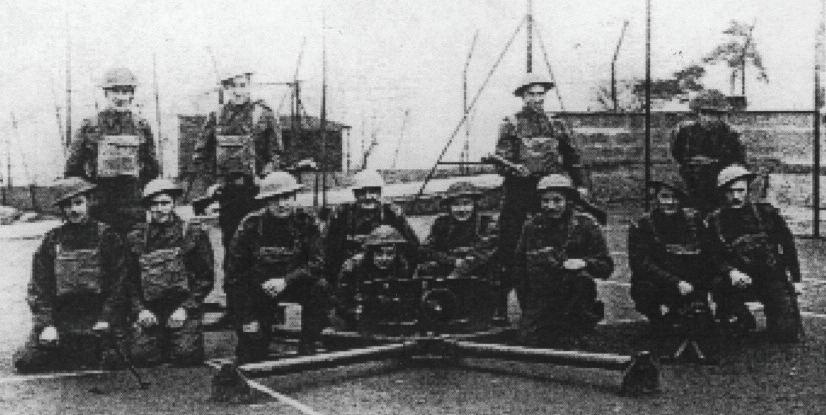
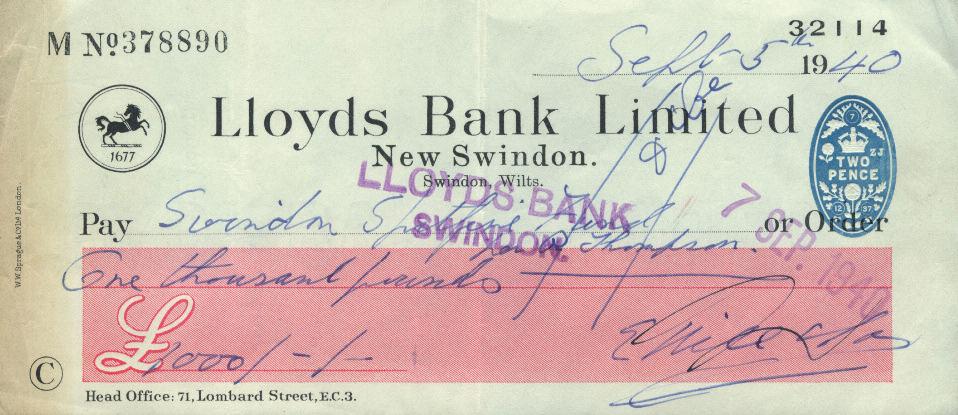

The family was at the heart of wartime activities in the area...
Soon after the war, Edward began to turn his energy to digging gravel at South Cerney, near Cirencester and leased a stone quarry at nearby Stratton
By the advent of the Second World War, the business was trading as ‘E Hill & Sons’ and based itself at Kingshill in Swindon The family was at the heart of wartime activities in the area, with many lorries requisitioned for Army use, earning liberal petrol allowances for essential activities such as hauling gravel and timber for new aerodromes, excavating foundations for new factories and supplying air raid shelters.
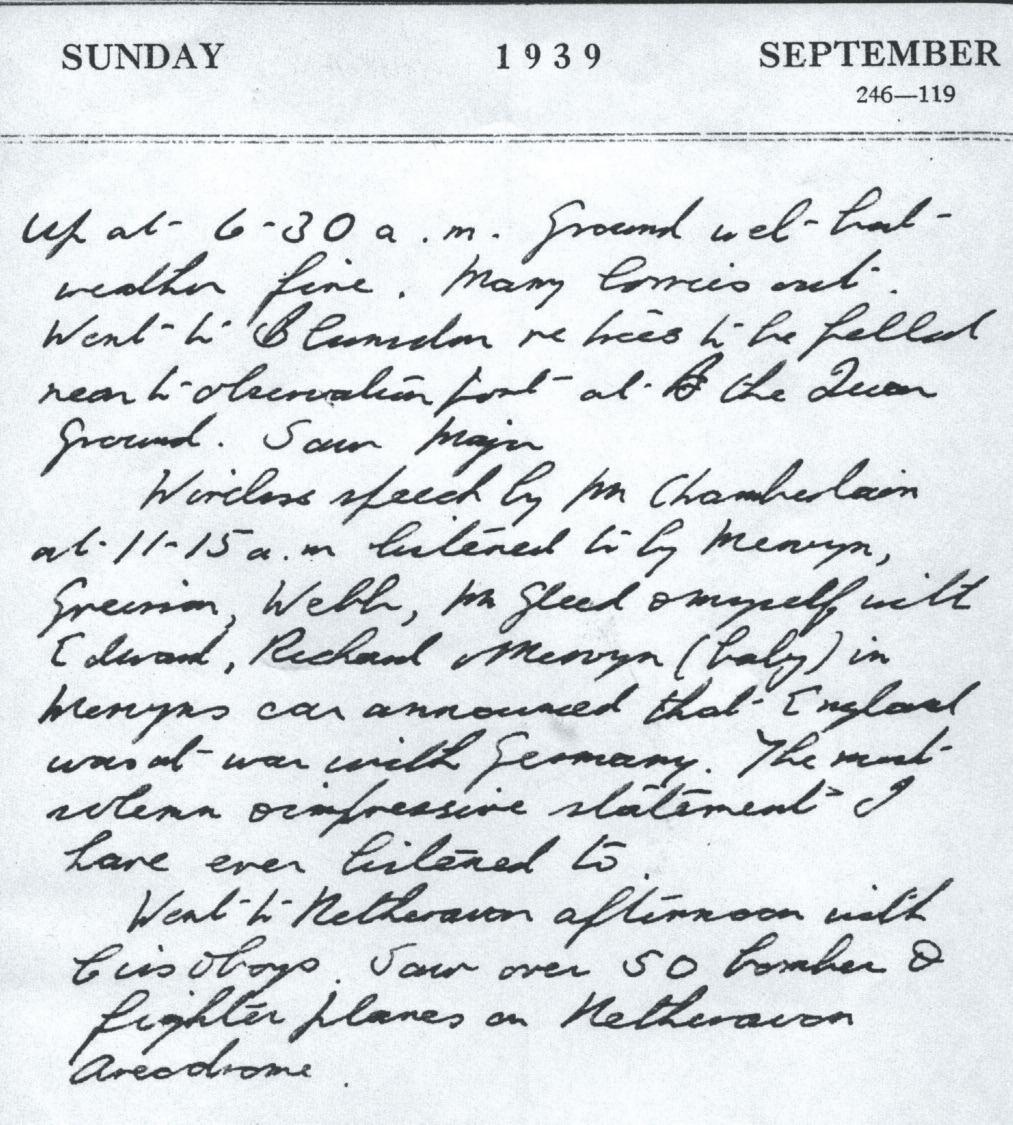

Grahame and Mervyn set up the Kingshill Home Guard, which most of Hills' employees joined, while Harold was on active service in Europe. The company also donated £1,000 to the Swindon Spitfire Fund.
During this time, gravel extraction began in earnest at Newbury, and both Harry Boulton and Stan Goss – familiar names in Hills’ lore – joined the company. Another employee, Peter Carver, was shot down while on active service off Tunisia but survived to return to his job at Kingshill after the war.
Grahame’s wartime diaries tell these and many other stories of air raids, Churchill’s speeches, shortage of sweets and silk stockings. Mervyn meanwhile, was kept busy helping the company to ‘make-do and mend’, keeping costs down by extending the working life of vehicles and machinery.
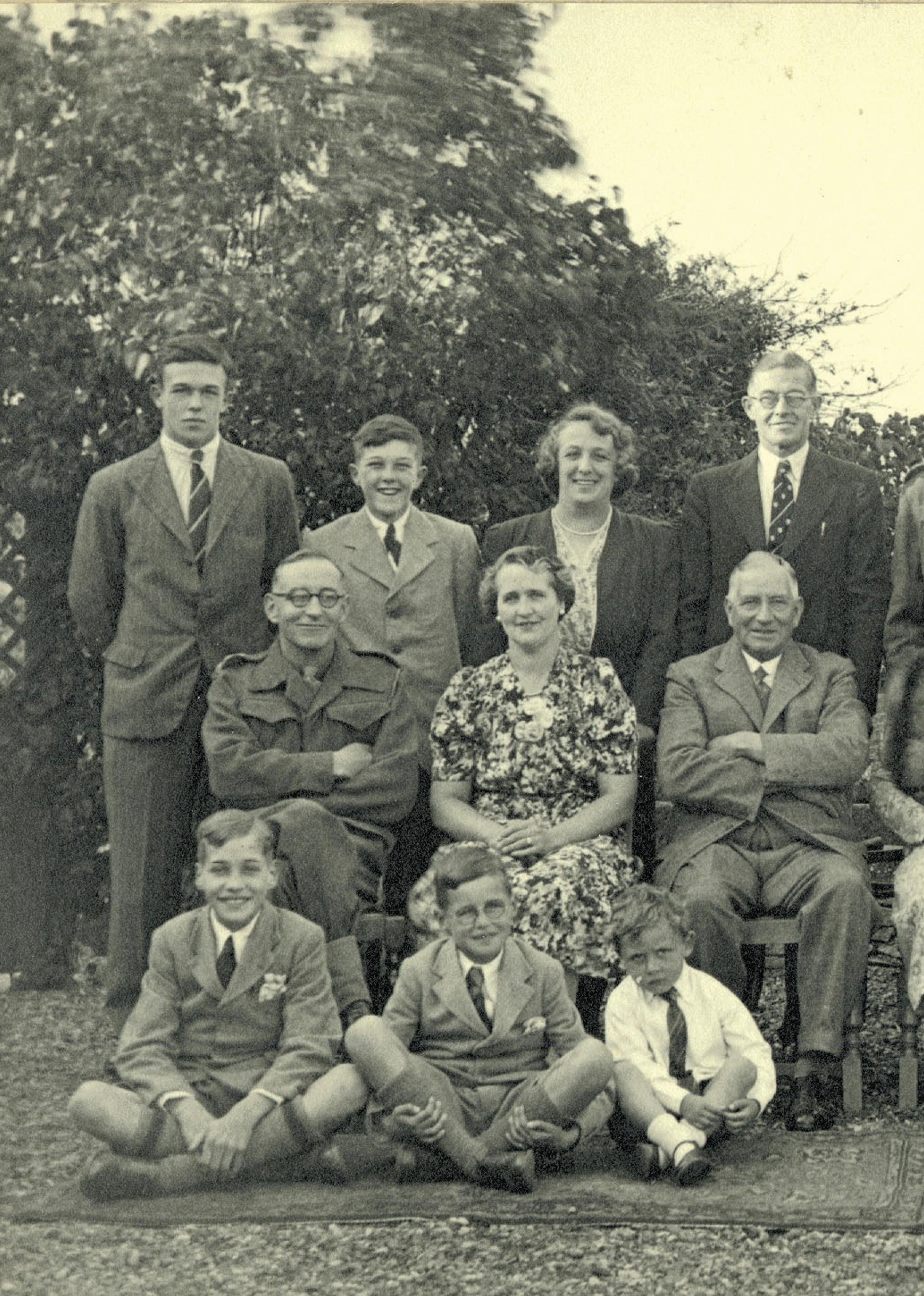

The Hill family in 1943, from left to right: (back row)
(middle row) Grahame, Mary, Edward, Laura, Harold, Ada, Tony (baby), (front row) Edward, Richard, Robert, Rosemary, Beverley
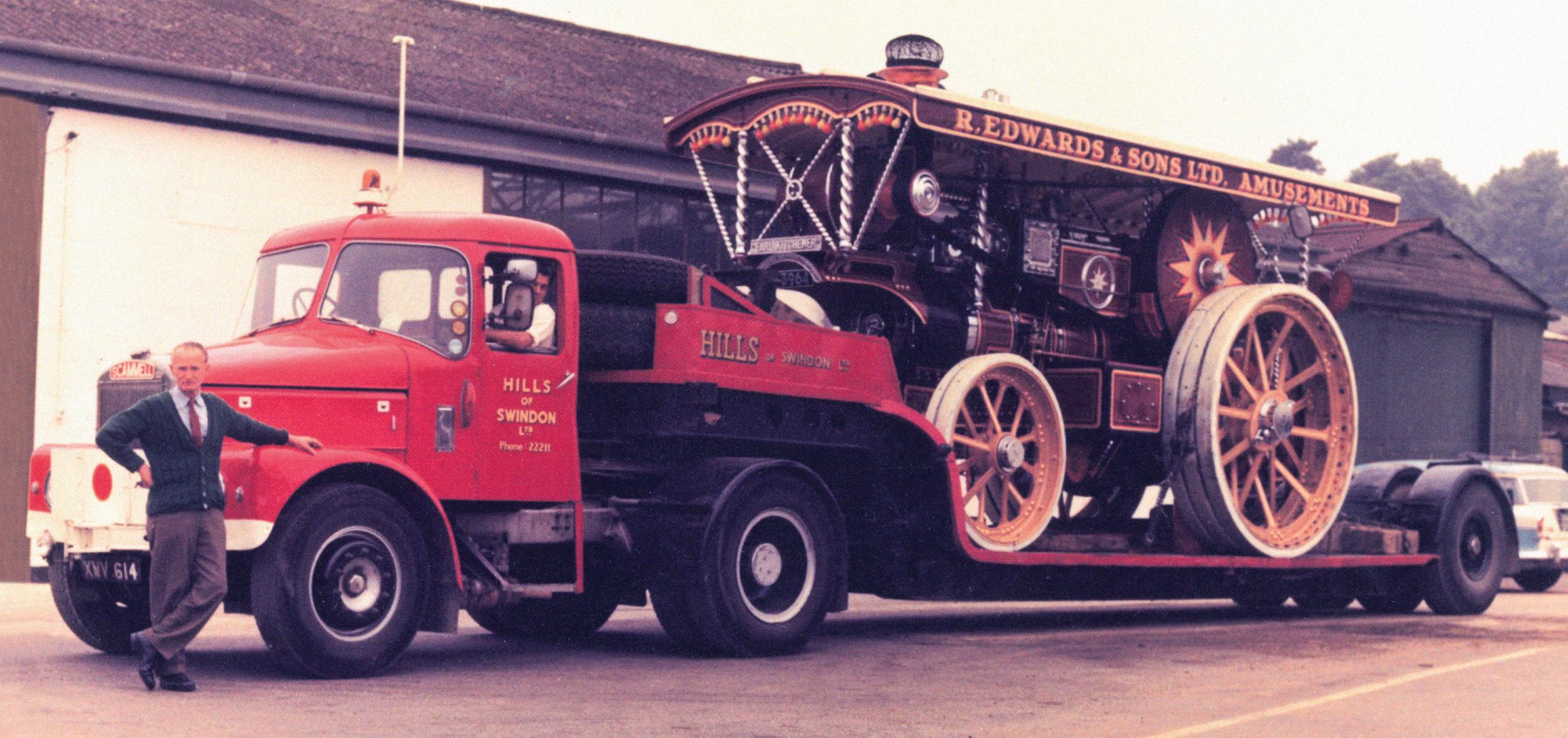





In the years after the Second World War, the Hills transport fleet grew in its diversity, size and efficiency.



By the 1960s some Hills vehicles were fitted with two-way radio much ahead of their time.
By 1957 the business – by then a limited company – operated around 100 goods vehicles and even had a London transport base Growth through the 50s was slow but investment continued in plant, vehicles and gravel-bearing land Sand came from quarries in Calne and Newbury; gravel from Lacock, Newbury and South Cerney; precast concrete from a works at South Cerney; blocks from Purton and bricks from Purton and Badbury
Administration was carried out at Kingshill under Grahame’s direction, while Mervyn led on plant hire and repair, research and development. He was a radio enthusiast and by the 1960s some Hills vehicles were fitted with two-way radio much ahead of their time. Harold, on returning from the war, took up the reins at the brickworks. This period also saw the set-up, under Richard Hill’s wing of companies supplying reconditioned tyres. When the concept of ready-mixed concrete burst upon the building scene, Hills set up Mixconcrete subsidiaries in Swindon, Newbury, Devizes and Bristol.
A feature of the post-war years was the employment by Hills of German prisoners of war and later of Italian workmen, some of whom stayed on in Swindon as the nucleus of today’s Italian community.
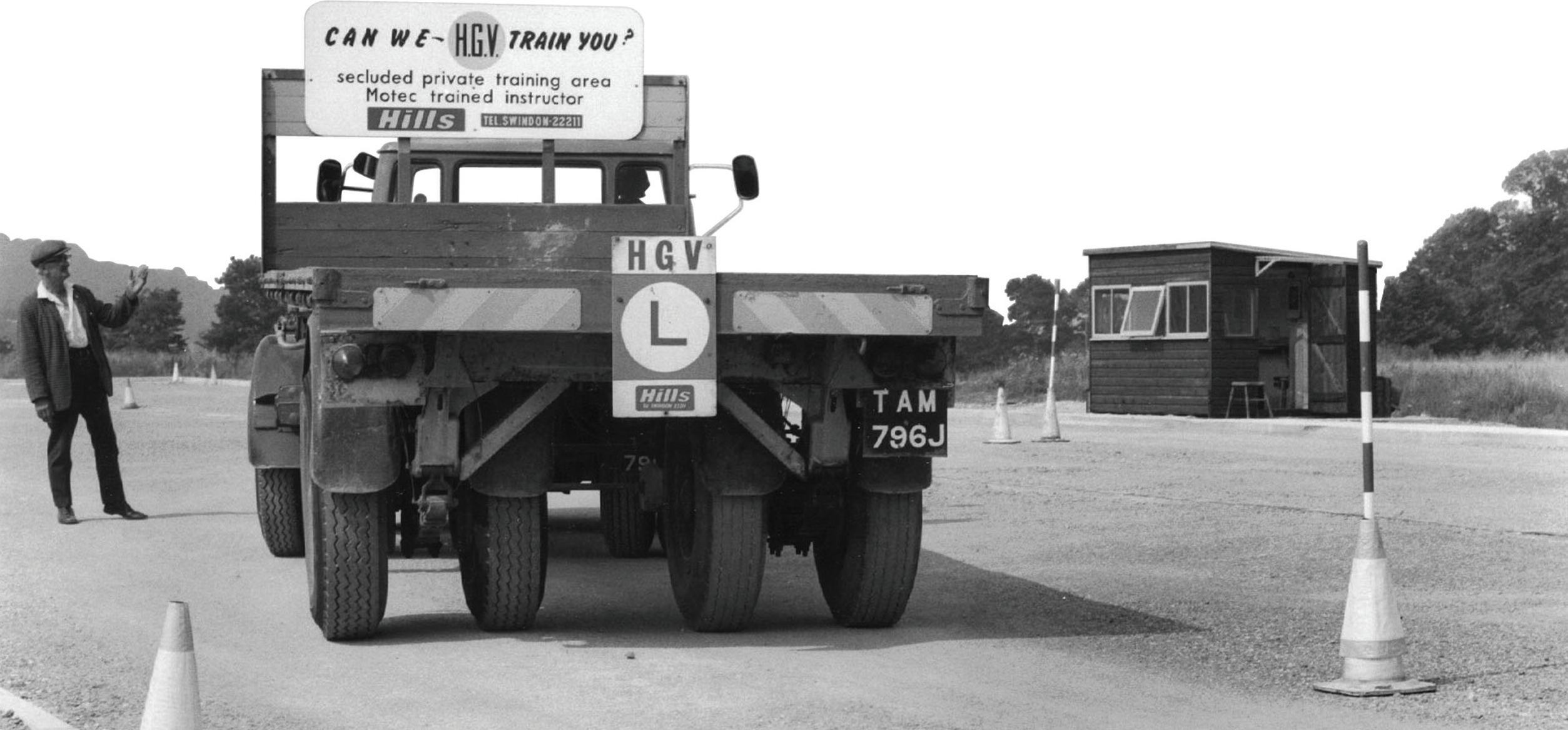


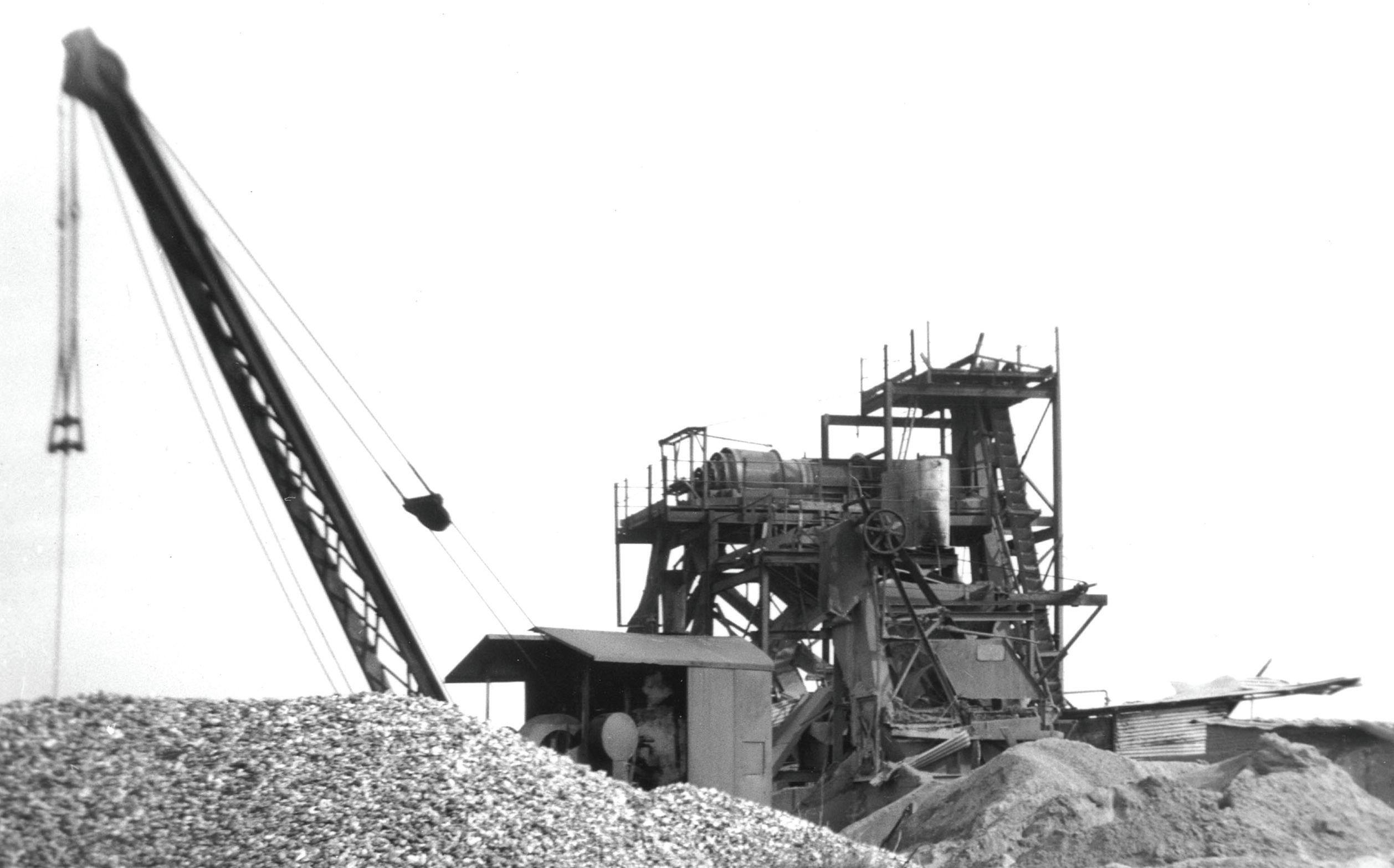

Aggregates have been important for Hills throughout its existence and prospecting was a major preoccupation. Many of the family have memories of sitting in the back seat of Dad’s or Grandpa’s car and being driven to a location while their elders prodded the ground or bored holes!



Hills still retains substantial gravel reserves in the Cotswold Water Park.
Today, the Cotswold Water Park is the most important source of gravel in the region – and yet quarrying has also been the vehicle for the creation of a beauty spot and leisure amenity enjoyed year-round by many thousands of people Hills was active in the area from 1919 and is thought to have been the first quarry company to operate there
Extraction began on a much larger scale after the Second World War, when the first of today’s 140-plus lakes was formed. Because the water table is so high, the first quarries were dug ‘wet’ using a dragline loading onto barges. Today, however, the quarries are ‘de-watered’. When extraction is complete, the pumps are switched off and the sites fill naturally with water.


Harold’s son, Tony, worked for the business at South Cerney in the arctic winter of 1962-63 and recalls ice on the lake so thick that cars could be driven across it. Many of the lakes were made available for leisure as well as wildlife, and Hills took the initiative by forming the Cotswold Marina Company in 1971.
Today, Hills still retains substantial gravel reserves in the Cotswold Water Park and is justly proud of the part it and other operators have played in creating a leisure facility th is larger than the Norfolk Broads.
Despite the great activity of the 1960s –including the work that went with motorways coming to the area – it was an unsettled decade for the company financially. Amongst those who joined the company in that period was Grahame’s youngest son, Robert, a qualified chartered accountant who went on to become managing director in 1968.




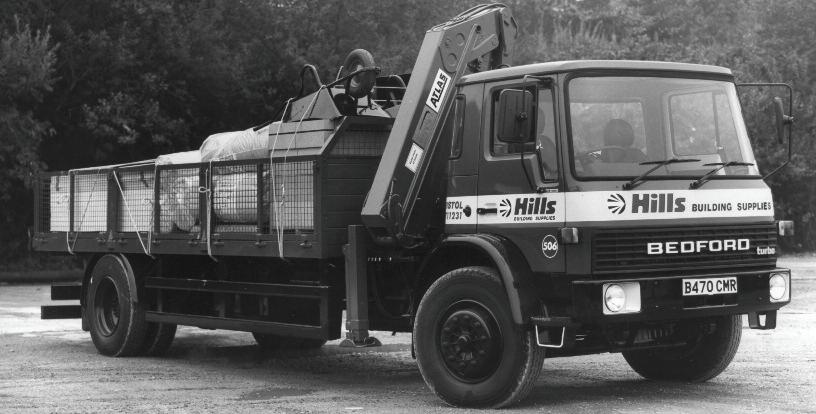












Amongst the non-family executives of great significance to the company was Don Howard, who was appointed director and general manager in 1969 His arrival heralded a period of expansion and increased profitability. Unprofitable operations were improved or sold.



BP made Hills an offer it couldn’t refuse for both Handygas and Sungas.


Brickworks were closed at Devizes in 1968 and Badbury in 1970, but the land retained The company divested itself of its long-distance haulage operations, plant hire was reorganised and the servicing workshop closed down
The focus for investment switched instead to waste disposal and to skips for hire, with a series of acquisitions in the west plus a quarry south of Bristol to supply road building materials. Purchase of a brickworks in Gloucestershire in 1975 proved to be a wider catalyst in that its kilns were fired by liquid propane gas bought from Shell. Soon, Purton brickworks switched to the same fuel and the company went on to buy two distributors, Handygas and Sungas - which were subsequently purchased by BP when they made Hills an offer for both companies it couldn't refuse.
In the 1970s and 1980s, much group activity centred on Hills Building Supplies – originally developed after the war to offer a wide range of drainage pipes, bricks, cement, timber and other materials. Ever alert to new trends, Hills was in the vanguard of the booming DIY home improvements era with the launch in 1977 by comedian Eric Morecambe of the Hills Home Improvement Centre at Kingshill.
The death the same year of Grahame Hill brought to an end involvement by the sons of the founder. Mervyn had retired in 1972 to live in Malta and Harold had died in 1973. On his father’s death, Robert became chairman of the family company at the age of 38.

Market conditions proved much more difficult generally the 1980s. Hills put the merchanting operation up for sale after market forces foiled efforts to boost its performance. The divestment of the various operations was followed by a move of headquarters from Kingshill to Marlborough in 1990.
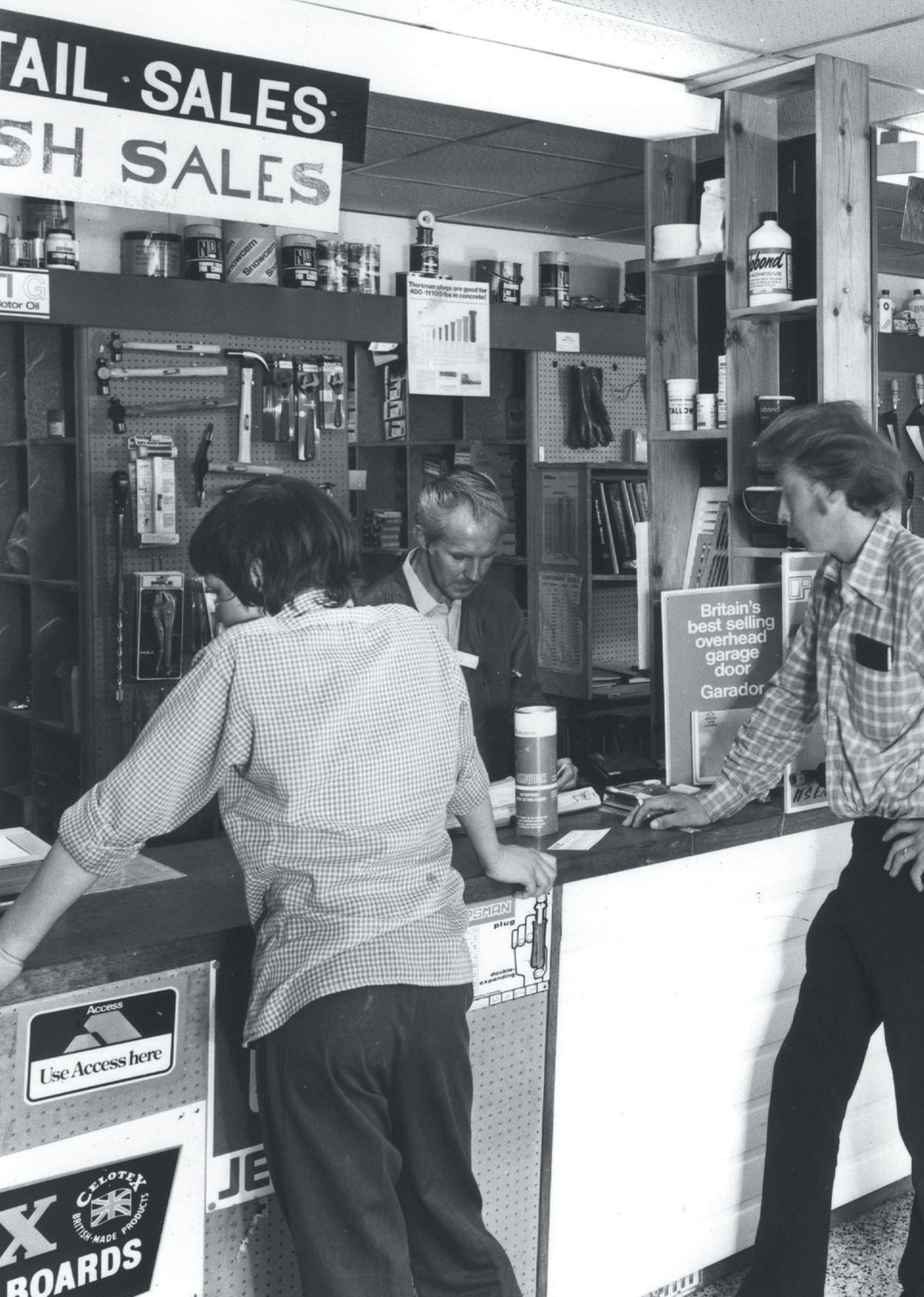

A typical scene in the 1970's as local tradesmen purchase equipment and supplies.


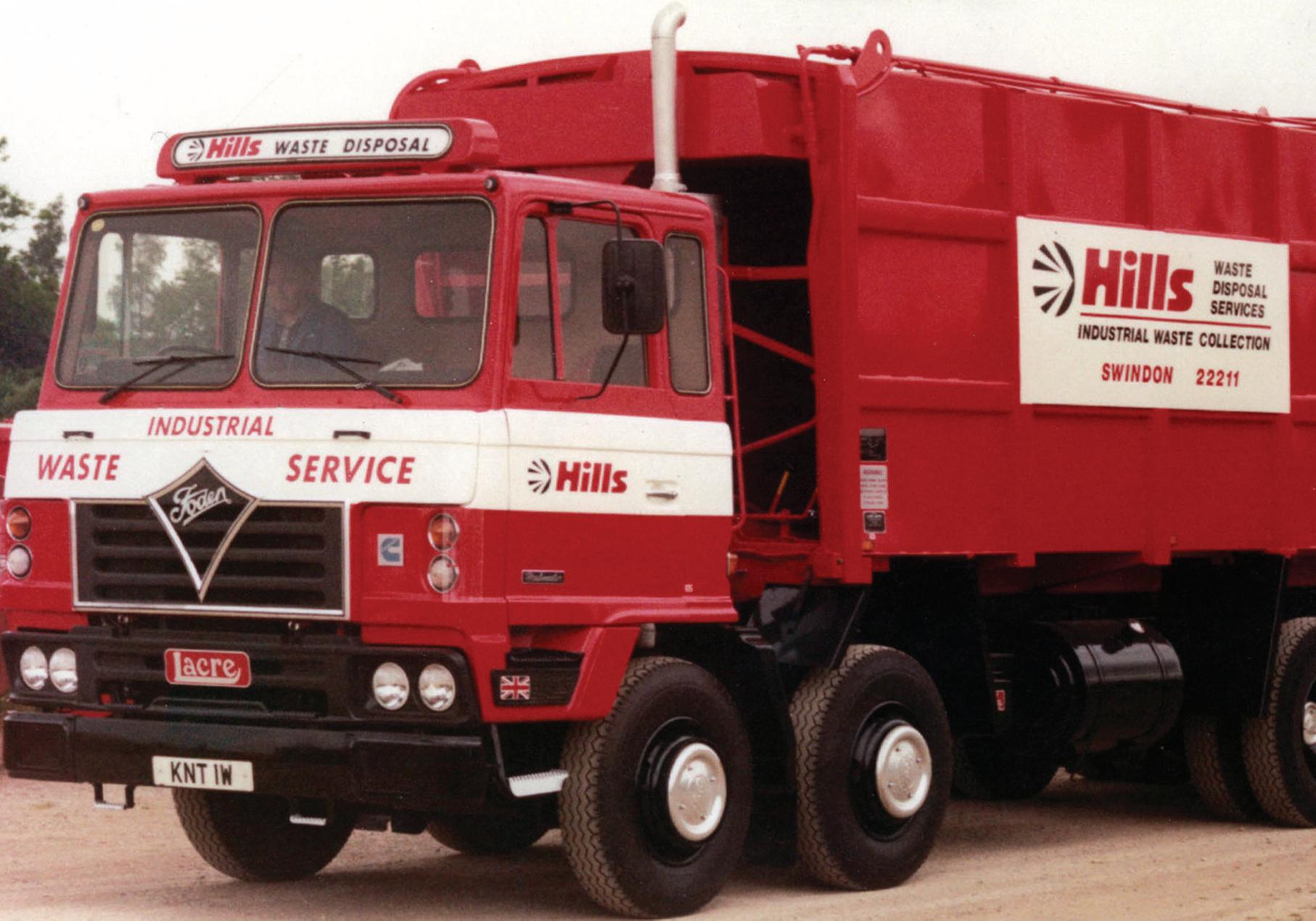
While the Cotswold Water Park quarrying operations left lakes for leisure and nature’s benefit, Hills’ quarries elsewhere created voids that were of commercial value for disposal of builders’ rubble and also for household waste.



Hills still retains substantial gravel reserves in the Water Park.

The growing potential of this activity was recognised in 1968 when the company purchased its first skip vehicle – the basic tool of waste disposal Before long, it had acquired a fleet of skips which were run in conjunction with plant hire
While waste disposal grew in its potential, other parts of the group came to an end Farming operations at Kintbury, Calne and Purton were all wound up when the managing director of that business, Edward Hill (Grahame’s eldest son), retired.
One-by-one, the brickworks closed, squeezed by the larger national manufacturers. Devizes went in 1968, Badbury in 1970 and finally, Purton in 1977. While the land at Badbury was restored, Purton proved a valuable landfill site as well as a source of impermeable clay for projects such as lining the restored Kennet and Avon Canal. Today, the old Purton site also houses an industrial estate as well as a Hills transport depot and household recycling centre.
While the former Thatcham sand and gravel quarry became an industrial estate, two major new aggregate reserves were bought in 1984 at Shorncote, near Cirencester and at Faringdon.

Alan Pardoe became managing director in 1992, with Robert Hill as chairman. Under their direction, the group concentrated on a narrower but more profitable range of activities. In 1998, it bought out builders Olivemead Developments and launched itself into a new core activity – the construction of high quality homes. By then, the company had changed its name to The Hills Group.
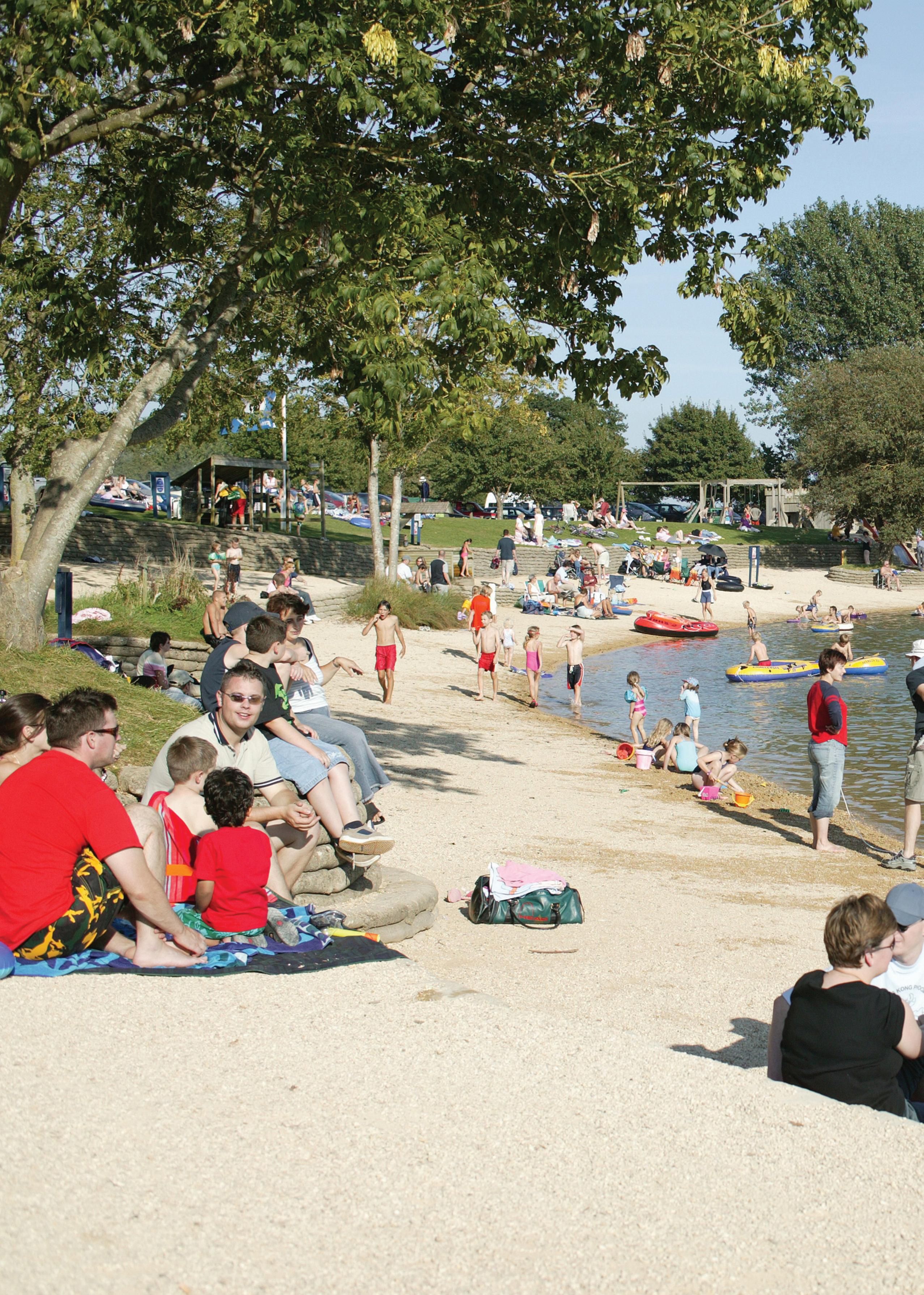

Careful restoration and collaborative work over many years has created an exceptional leisure amenity and a haven for wildlife.


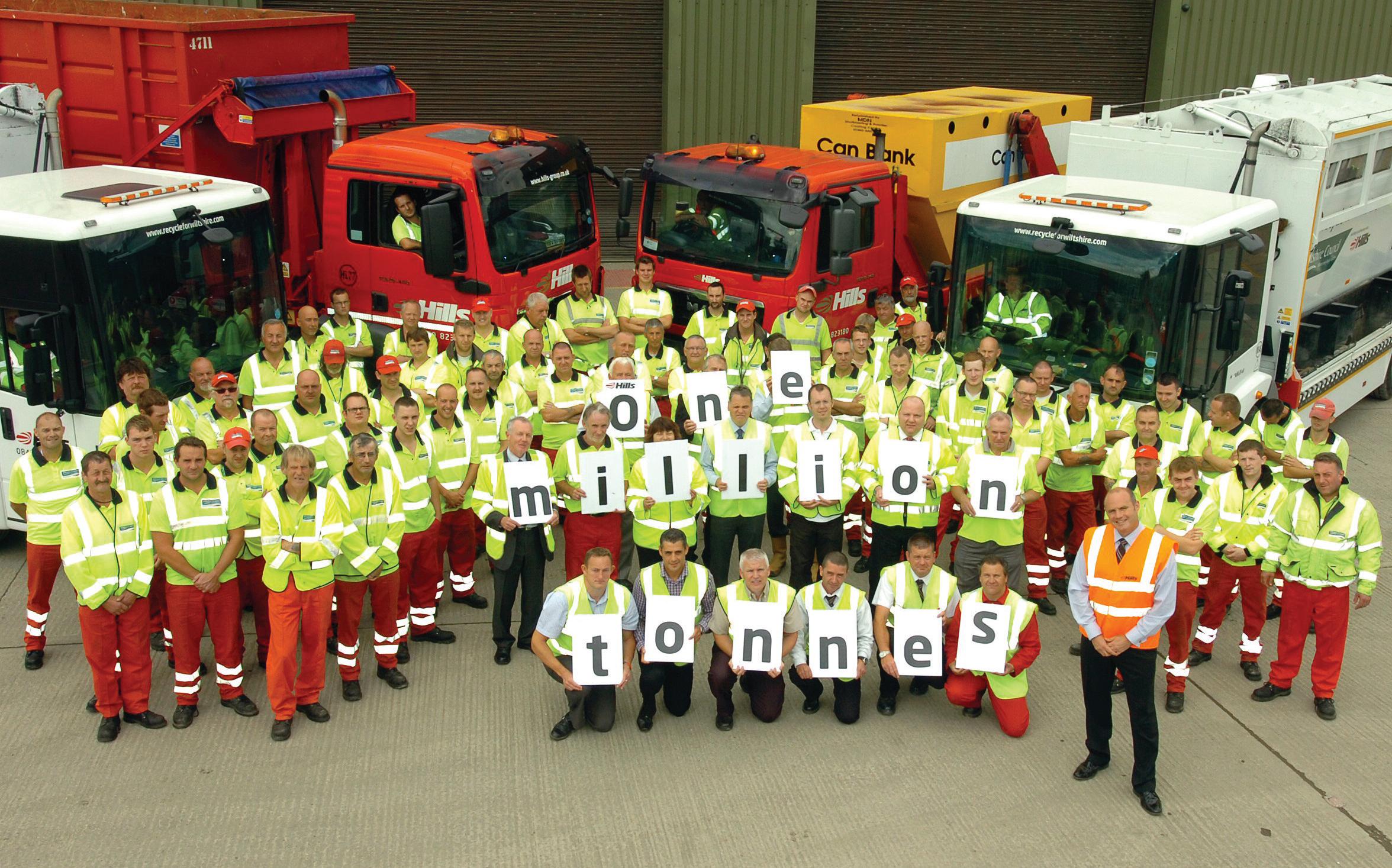
Today’s Hills Group is a dynamic regional business which, while still centred on Wiltshire, has stretched its boundaries into neighbouring areas and now serves customers across the UK Hills was based for almost a quarter of a century in the market town of Marlborough.




The workforce has doubled to over 400 people since the millennium.
In 2014 the Group’s headquarters relocated to the area of its roots in Swindon with impressive new offices that reflect the progressive nature of the business
The workforce has doubled to over 400 people since the millennium, but it remains dedicated to three core activities: waste management, quarry products and the building of new homes.
Recycling and waste management activities continue to grow apace for customers in both the public and private sectors. While hazardous and non-hazardous landfill remains an important activity - it is now a final option as Hills Waste Solutions seeks every opportunity to transform waste into a resource. In a typical year, the business recycles and recovers over 400,000 tonnes of waste and harnesses sufficient gas from landfill sites to satisfy the electricity needs of some 10,500 homes.
Each year 60,000 tonnes a year of Wiltshire’s household waste is processed at the Northacre Resource Recovery Centre, creating solid recovered fuel (SRF) for power stations, with an additional 50,000 tonnes processed at Lakeside Energy from Waste facility, creating electricity for the National Grid. Garden waste is transformed into a peat-free, compost that is certified to BSI PAS 100 standard and is accredited by the Soil Association and Association for Organics Recycling – it’s a perfect example of closed loop recycling.


Hills has been involved in the prospecting and extraction of sand and gravel for nearly a century The modern day business operates strategically located quarries, serving wide areas of Wiltshire, Gloucestershire, Oxfordshire and Dorset

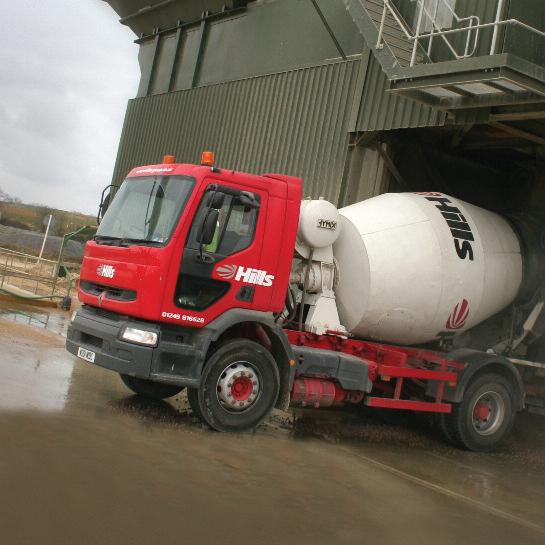

The company ’ s ready-mixed concrete business now operates a network of successful concrete plants Muck-away and haulage services complete the offering, with several licensed waste disposal sites available Quarry Products has taken the lead on a number of industry safety initiatives including the MPA Cycle Safe campaign

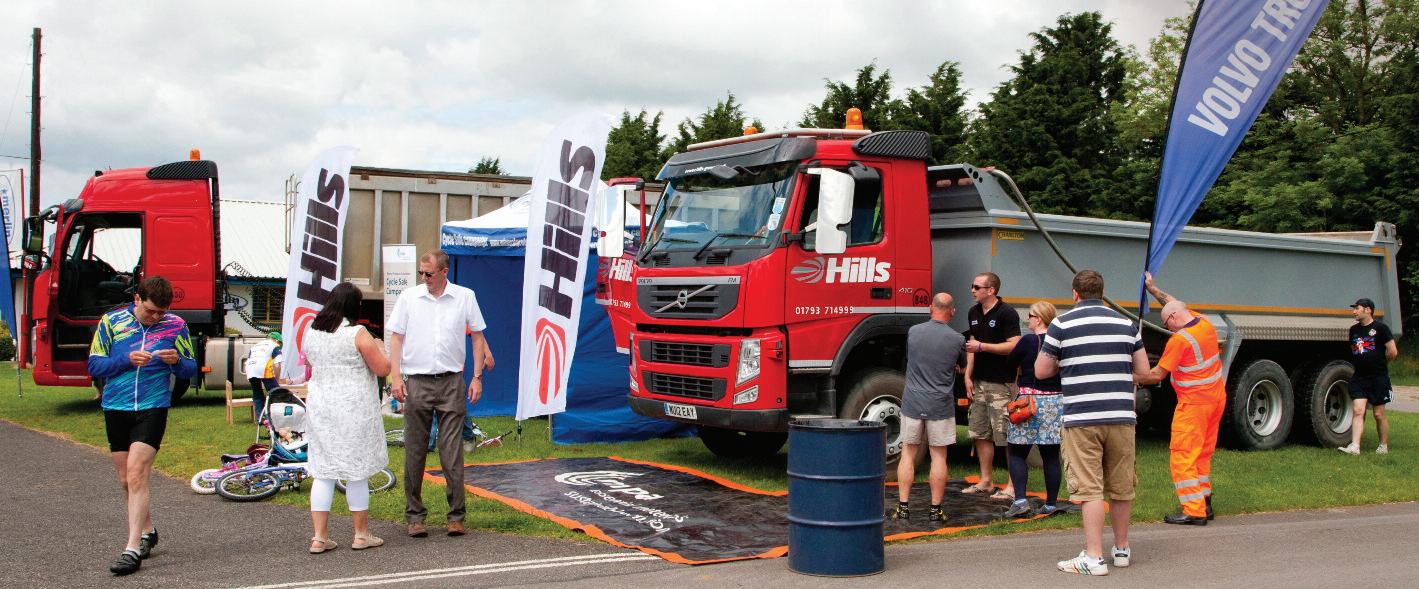
Hills has been involved in the prospecting and extraction of sand and gravel since the early 1900s.






Hills Homes continues to win recognition and accolades for the quality and energy efficiency of its properties.
Hills Homes grew quickly following the purchase of Olivemead Developments in 1998 and continues to win recognition and accolades for the quality and design of its properties
The business has earned a glowing reputation for building quality homes in carefully selected locations


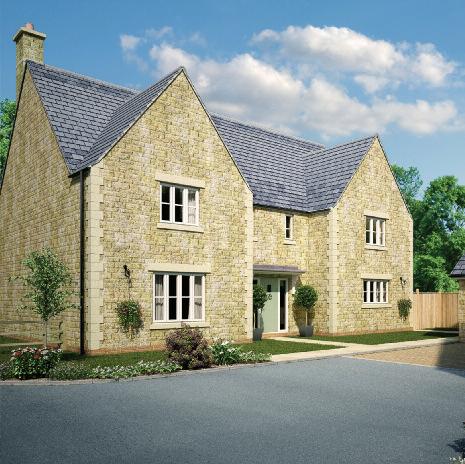
Traditional building skills, craftsmanship and the most up to date green technologies are combined with the best quality materials to create beautiful homes which offer stylish, sustainable and efficient modern living


Hills is a sponsor of high-profile events including the Hills Wiltshire Professionals’ and Junior Golf Championships; Marlborough Jazz Festival (since its inception in 1986) whilst also sponsoring a wide variety of Wiltshire-based sports teams
Landfill sites are restored in accordance with strict Environment Agency rules and landfill gas is harnessed to create energy for the National Grid
Recycling and waste management services help customers achieve zero waste to landfill targets
Recyclable waste including paper, glass, metal and plastic are delivered to the Materials Recycling Facilities (MRFs) and sent on to be made into new products, saving precious resources
Hills UK is a commercial property landlord with a range of office and industrial units
The Northacre Resource Recovery Centre uses mechanical and biological treatment to transform waste into solid recovered fuel which is used in advanced thermal treatment plants to generate power and heat
Six quarries across central southern England supply sand, gravel and stone, including the popular Cotswold Path Gravel , to customers in a wide variety of industries
Significant financial support and close working relationships with archaeological authorities help to ensure that amazing artefacts and fossils from quarry sites are preserved for future generations
The power of the sun is being harnessed to provide energy for offices and operational sites
A network of five concrete plants produces QSRMC certified ready-mixed concrete and screed Mini-mix trucks can deliver smaller volumes to sites with access or weight restrictions
The efficient operation of Household Recycling Centres under contract for Wiltshire Council has seen over 1,500,000 tonnes of waste recycled and diverted from landfill
Educational visits are conducted at many operational sites to teach the next generation how to reuse, reduce and recycle waste and how quarries can be sensitively operated and then restored to create havens for wildlife
Hills Warrior Compost is made from collected domestic garden waste and is certified to the BSI PAS 100 standard It can be purchased at any of Wiltshire’s Household Recycling Centres
Millions of pounds have been made available through Landfill Communities Fund grants (administered by Community First) to create playgrounds, community halls and other local facilities across Wiltshire
Hills Homes has won many awards for building stylish high quality homes and affordable houses which offer economical, sustainable and efficient modern living
16
Hills supports the Mineral Products Association’s national Cycle Safe campaign and other road safety initiatives Hills continues to invest in the latest safety technology across all its fleet
Restoration work to transform old gravel and sand pits into both havens for wildlife and exceptional leisure amenities has won many awards The Cotswold Water Park is an impressive result of collaborative work over many years
A unique 24 year partnership with Wiltshire Wildlife Trust has seen Hills provide millions of pounds in Landfill Communities Fund grants to preserve sites of environmental importance and allow the public to access and
Wiltshire’s countryside


The economic climate has been a challenging one in recent times, but The Hills Group is, nonetheless, in good shape and well prepared to tackle future challenges and pursue opportunities.




The field of recycling and waste management offers particular scope for consolidation and expansion as both the private and public sectors transform their operations to become environmentally sustainable With landfill an increasingly unattractive option for both financial and ethical reasons – Hills Waste Solutions continue to innovate as pioneers of the circular economy with business activities increasingly focussed on sustainability and utilising waste as a resource.
This is epitomised by the construction of the £24 million Northacre Resource Recovery C t Wiltshire’s first plant to use mechanical biological treatment to create or power generation. Operated under a 25 year contract agreed ith Wiltshire Council it has paved the way for further investment in projects harnessing advanced technologies to process waste to generate energy. Given increasing recognition of its highly professional and yet traditional and flexible approach, Hills Waste Solutions looks set to continue the trend of winning large waste management contracts with the private and public sectors across the UK.
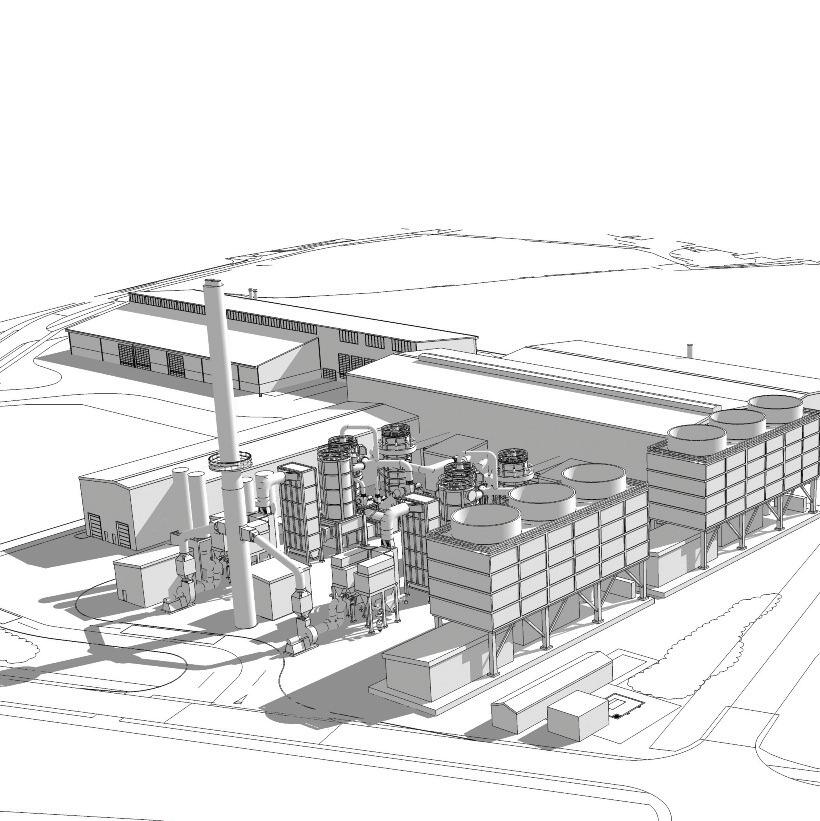
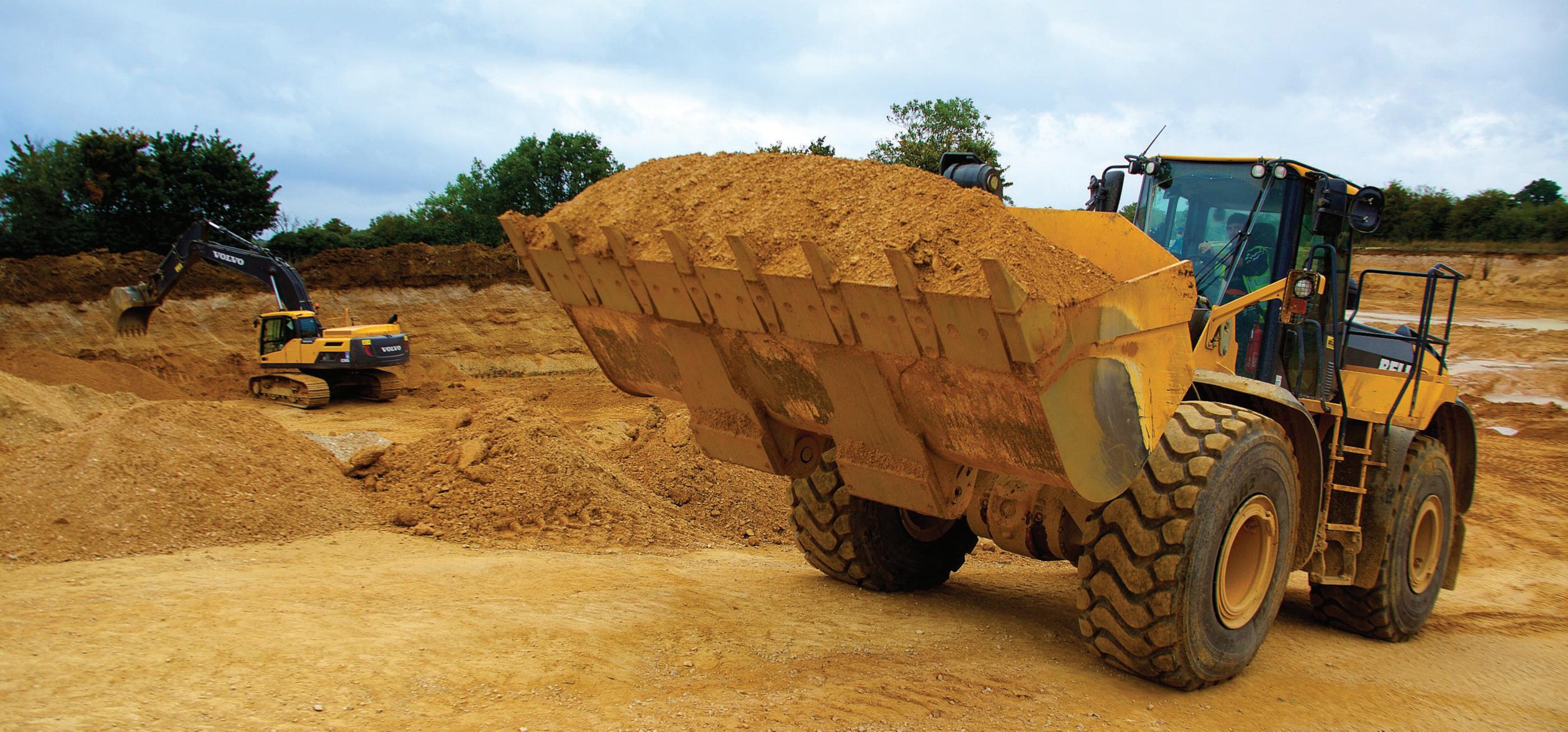
Quarry Products will be looking to expand its network of ready-mixed concrete plants, whilst continuing investment in existing sites to ensure the high quality products associated with QSRMC accreditation are maintained
In addition to traditional ready-mixed concrete, screed and mini mix services the business will actively seek out partnerships with concrete product manufacturers as well as offering specialist concrete mixes and concrete pumping services.
On the aggregates front, the Quarry Products business faces challenges that are common to the industry in replenishing reserves. The newly opened Cerney Wick Quarry in the Cotswold Water Park will help meet market demand for washed aggregate products and wildlife will be encouraged to the site during the various stages the quarry will go through. Additional quarry sites with potentially substantial reserves are being investigated as is the potential of harnessing green energy to power the quarry sites.


Cerney Wick Quarry will help meet market demand.
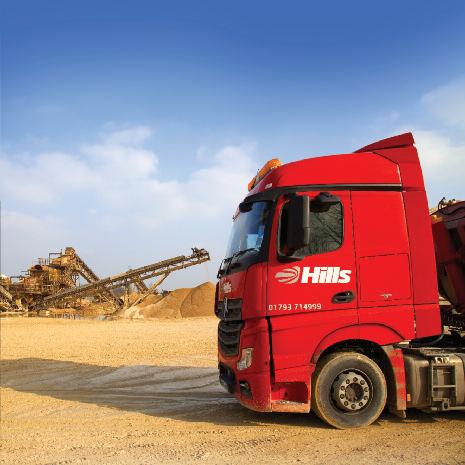



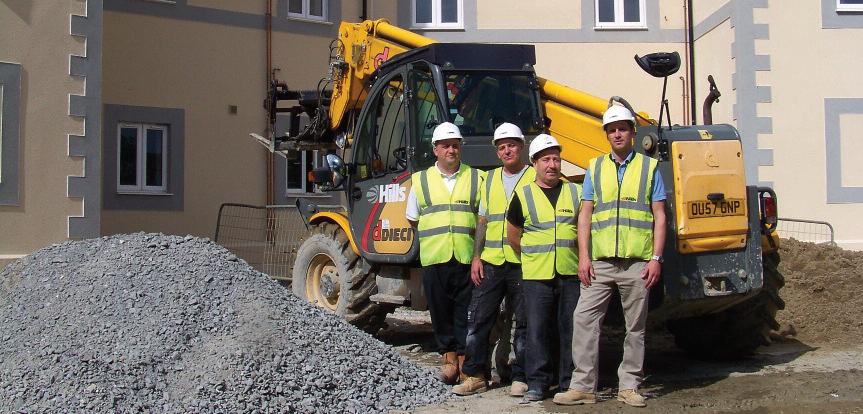
Hills Homes will continue to proactively search for sites with development potential across central southern England whilst utilising landholdings from the wider Hills Group From bespoke country homes on the edge of sought after villages to major urban developments, Hills Homes will continue to bring individual quality to each of their developments LABC and NHBC warranties will give buyers further peace of mind that they are purchasing a quality home.
The business is also a successful contract builder, with its expanding portfolio of residential developments for housing associations.







Throughout its long history, Hills has always held on fiercely to its independence. Despite working in industries dominated by multinational concerns, the close support of shareholders has made it possible to resist overtures to join forces.




A wide variety of community projects have also benefitted from Hills’ LCF grants.
Today, the business is led by chief executive officer Michael Hill, the great grandson of its founder, with Alan Pardoe now in the role of chairman Under them, the business remains very much a family one, and that is reflected in its relationships with its stakeholders – and in its approach in particular to its employees, to local communities where it operates and to the environment
The company cares passionately about people with the health and safety of its employees as its top priority. It operates to high environmental standards designed to minimise any impact on its neighbours, and communicates readily with them on a day-to-day basis and through a string of liaison committees, publications and digital media.
Restoration of land that has been quarried – sometimes through landfill – is a particular skill that has won the company a series of top industry awards. The work in the Cotswold Water Park is of particular note, but so too is Langford Lakes, a superb nature reserve in the Wylie Valley near Salisbury. The achievement is one of many in which Hills has partnered the Wiltshire Wildlife Trust with substantial and still growing overall benefits to nature and communities.

In 1992 Hills embarked on what was to become a unique partnership by providing direct funding to the Wiltshire Wildlife Trust. This partnership took advantage of the opportunity presented by the Government in 1996 to allocate a portion of its landfill tax to local good causes. Since then Hills has supported third party organisations such as Wiltshire Wildlife Trust, Community First and Cotswold Water Park Trust granting millions of pounds through the Landfill Communities Fund (LCF) to help preserve the amazing biodiversity of habitats and species in Wiltshire for all of us to enjoy.
A wide variety of community projects have also benefitted from Hills’ LCF grants, ranging from village halls and churches, to sports clubs, canal locks and wild flower meadows – not to mention the numerous charitable causes The Hills Group supports with direct donations.

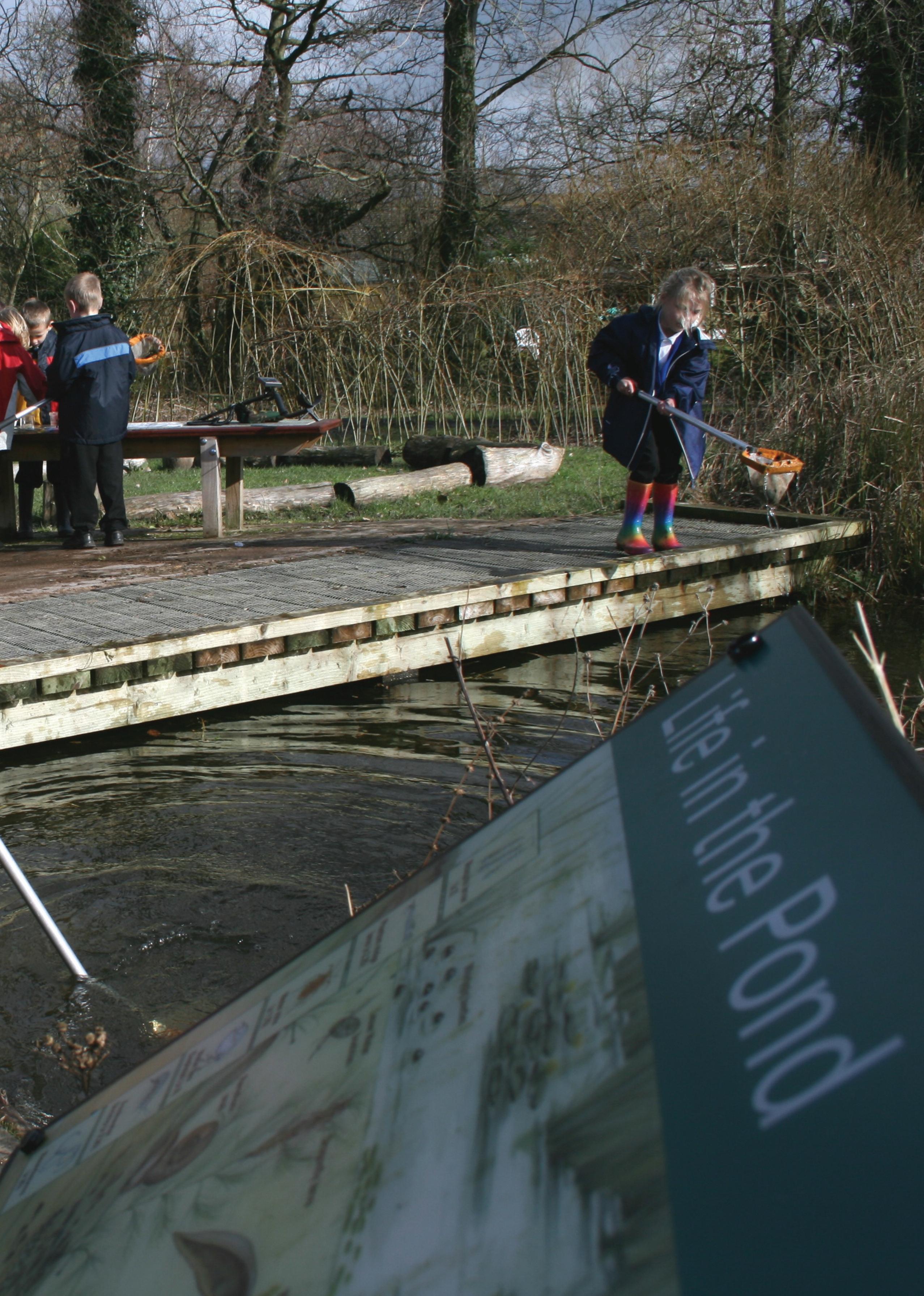
This stunning Wiltshire Wildlife Trust reserve covers an expanse of 31 hectares, with four lakes and an 800m stretch of the Wylye River
The Hills Group Limited
Wiltshire House, County Park Business Centre
Shrivenham Road, Swindon, Wiltshire SN1 2NR
T: 01793 781200
E: info@hills-group co uk
www.hills-group.co.uk
@HillsGroup Hills Group The Hills Group Limited